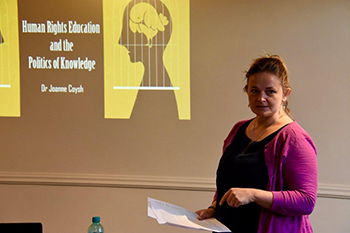Latest News Archive
Please select Category, Year, and then Month to display items
09 December 2020
|
Story Carli Kleynhans
|
Photo Supplied
 Carli Kleynhans.
Carli Kleynhans.
With the most gruelling year recorded in our entire lives, gradually coming to an end we remain hopeful and thankful that we have made it through. From the unexpected shock of going into lockdown, to the worry of having to use a blended approach to succeed in your academics and now finally settling into a new normal, we at the advising office bestow upon you the title of Kovsie champion…because that's exactly what you are!
One of our many champions, Carli Kleynhans, a 3rd (final) year student enrolled for BA Psychology and English shares how she survived…no, actually how she has thrived in 2020.
• What was your biggest concern about your academics when you found out the country was going into lockdown?
My biggest concern about my academics as a final year student was whether the online learning and tests would provide the same in depth learning experiences that are necessary to build upon for future studies.
• What are some of the challenges you've experienced along the way?
Staying focused and trying not to procrastinate was a big challenge I had to conquer, especially trying to not be distracted by my family and my phone. How I survived and was able to thrive in 2020!
• What are some of the strategies you've used to ensure your academics don’t suffer?
Time management was one of the most important strategies that I applied. For most of my classes, I was able to focus each week on a different module, by working and studying in advance I was able to keep up with my workload and still have the weekends to focus on myself, therefore creating designated time to work, study and also time to relax and read.
• What support have you received from the institution that's helped you thus far?
Most of my lecturers have provided needed support regarding our academics. The institution helped provide clarity with everything that was going on.
• What do you think the UFS could have done differently to support student success?
I think the UFS could have provided more resources for the final year students, especially considering we have to apply for further studies; online it was difficult to discern exactly what was necessary for the applications, whereas in class I feel more information would have been provided.
• What has kept you motivated?
Knowing it is my final year has helped to motivate me, as I have to use these grades to apply for further studies. I recently received recognition from Golden Key and this helped to further inspire me to work even harder at my academics.
• What advice do you have for your fellow Kovsies who are finding it difficult to keep going?
Remember to make time for yourself, to look after yourself and your mental health, especially in these difficult times. Work in advance and keep to your personal academic calendar.
IRSJ Research Fellow promotes human rights transformation
2017-10-05

Dr Joanne Coysh and Dr Sahar Sattarzadeh attend the
launch of Human Rights Education and
the Politics of Knowledge.
Photo: Luis Escobedo D’Angles
Dr Joanne Coysh is a multi-talented individual who has designed, facilitated, and accompanied participatory processes for research, learning, and change. She is also a postdoctoral research fellow from the University of Warwick, in the UK, and is working at the Institute for Reconciliation and Social Justice (IRSJ) at the UFS. Dr Coysh’s book, Human Rights Education and the Politics of Knowledge, was launched at the Centenary Complex on the Bloemfontein Campus by the IRSJ on 15 August 2017.
Connecting theory with practice
In the book, she argues that the traditional ways in which human rights education is conducted often become an obstacle. Based on her work on participatory group processes, Dr Coysh is uniquely positioned to bring a different and more practical, even radical, angle to the process of human rights education. Her purpose with the book is to connect theory to practice in order to design processes through which people begin to take positive and transformative decisions and actions. These not only have the potential to transform lives but our relationships with each other and the world in which we live as well.
Teaching and learning from the bottom up
When working with individuals and groups, Dr Coysh believes that they should be engaged, enabled, and empowered throughout the process. Not only does she explore real problems in context, but when doing her work, she also believes in encouraging respect for existing research and knowledge.
Her international experience in education and working in communities has allowed her to integrate global best practices into local application, allowing her to explore the big picture as well as local context. Having mastered the art of balancing theory with practice, research with reality, and facilitation with integration, her book shows how this dance can turn human rights education into human rights transformation.